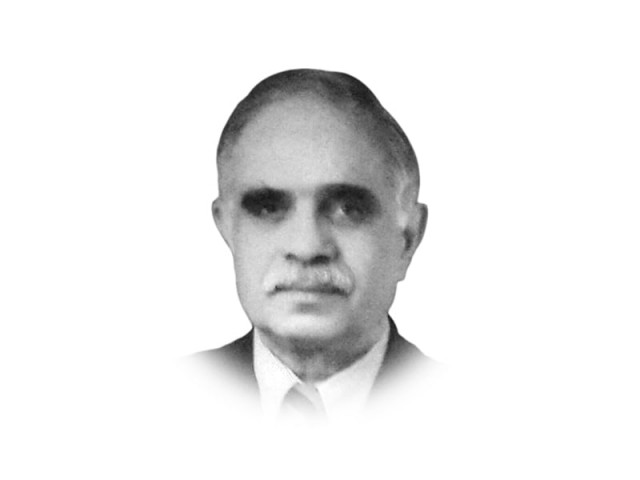Fear factor
Danger lies in politicising everything within reach; some things even beyond. This is not fear, but an ugly reality

Not to be outdone, some of us in Pakistan have done wonders in this arena so far. The logic behind or the consequences of uttering doomsday warnings is not considered here. The latest issue that has come up in this regard is the one about creating more provinces. There are those, according to whom, it is vital that Sindh is split into more provinces. The response given by the ruling party of Sindh is even more interesting. The PPP’s co-chairperson declared that Pakistan is fine as it is and that any subdivision of Sindh will destroy Pakistan. Bilawal Bhutto Zardari went a step ahead and said in no uncertain terms that death was preferable than the division of Sindh. Surely, we have not forgotten that it was the PPP, which spearheaded the campaign for the creation of Seraiki and Hazara provinces just before the last general elections. Ironically, non-acceptance of the demand for more provinces was also linked to the dismemberment of Pakistan. Does this somersault by the PPP make any sense? Is all this just politics or is there a greater scheme at work?
Then there is another group, which is doing its very best to convince us that Balochistan is close to breaking away from Pakistan unless something is done on emergency basis. In the next breath, this group equates Balochistan with the erstwhile East Pakistan. Occasionally, the media also joins in and then all hell breaks loose. I wonder how many of these fine gentlemen have even visited the province, or if they have done so, have stepped out of Quetta. I also wonder if anyone has ever stopped to ponder over the fate of all the money given to Balochistan so far. One ex-chief minister was very forthright about it. According to him, one year the province got Rs45 billion. All this money was distributed equally among 45 Baloch parliamentarians for ‘development’. There is no doubt that Bolochistan lags far behind other provinces and that the majority of Balochis in parts of the province are extremely poor. But our diagnosis of the issues facing it is skewed. The fear so created does, however, benefit its perpetrators. And now we get lectured day in and day out about democracy being seriously threatened. It is very conveniently forgotten that people harping on about democracy these days are only worried about their petty self-interests and that the Constitution they refer to is often what gives them a stranglehold on our lives. Whoever said that the constitution must serve the country and its people and that it must be dynamic enough to meet future challenges, needs to be confronted by these champions of democracy. The fear factor is built around two key elements: 1) that Pakistan is very fragile; 2) the simplest of causes, like making more provinces for administrative reasons, not catering to the whims of a few chosen ones in Balochistan, or improving the Constitution for its largest stakeholders, can lead to the country’s destruction. Some also add the construction of Kalabagh Dam in the same category.
Does anyone remember the propaganda blitz of the late 1960s when most of us in this part of the country were convinced that Sheikh Mujibur Rahman’s six-point agenda was, in fact, a conspiracy to break up Pakistan? Unfortunately, Pakistan did break up, over those very six points, but not because of them. It would be very interesting if we were to examine those six points in the light of the Eighteenth Amendment. We might come to the conclusion that perhaps, their acceptance in some form could have charted another, more progressive course for Pakistan.
Our perceptual biases need a reality check now and then. If nothing else, the ongoing political unrest should have opened our eyes to this single-most important lesson. We see some of the leading lights of the Balochistan cause singing to a different tune now that their needs, not those of the people, have been addressed adequately. We also find that democracy, if at all, is threatened more by the incompetence of our democrats rather than anything else. People also appear to have accepted the need to take our Constitution beyond the twenty amendments introduced, solely due to very limited and often very selfish reasons. Creation of more provinces on administrative grounds may not affect Pakistan negatively. Unfortunately, like the Kalabagh Dam, we have changed the basic premise behind each of these issues and now, the discussion has degenerated into petty politics once again.
The danger lies in politicising everything within reach, and some things even beyond. This is not fear, but an ugly reality.
Published in The Express Tribune, October 28th, 2014.
Like Opinion & Editorial on Facebook, follow @ETOpEd on Twitter to receive all updates on all our daily pieces.














COMMENTS
Comments are moderated and generally will be posted if they are on-topic and not abusive.
For more information, please see our Comments FAQ